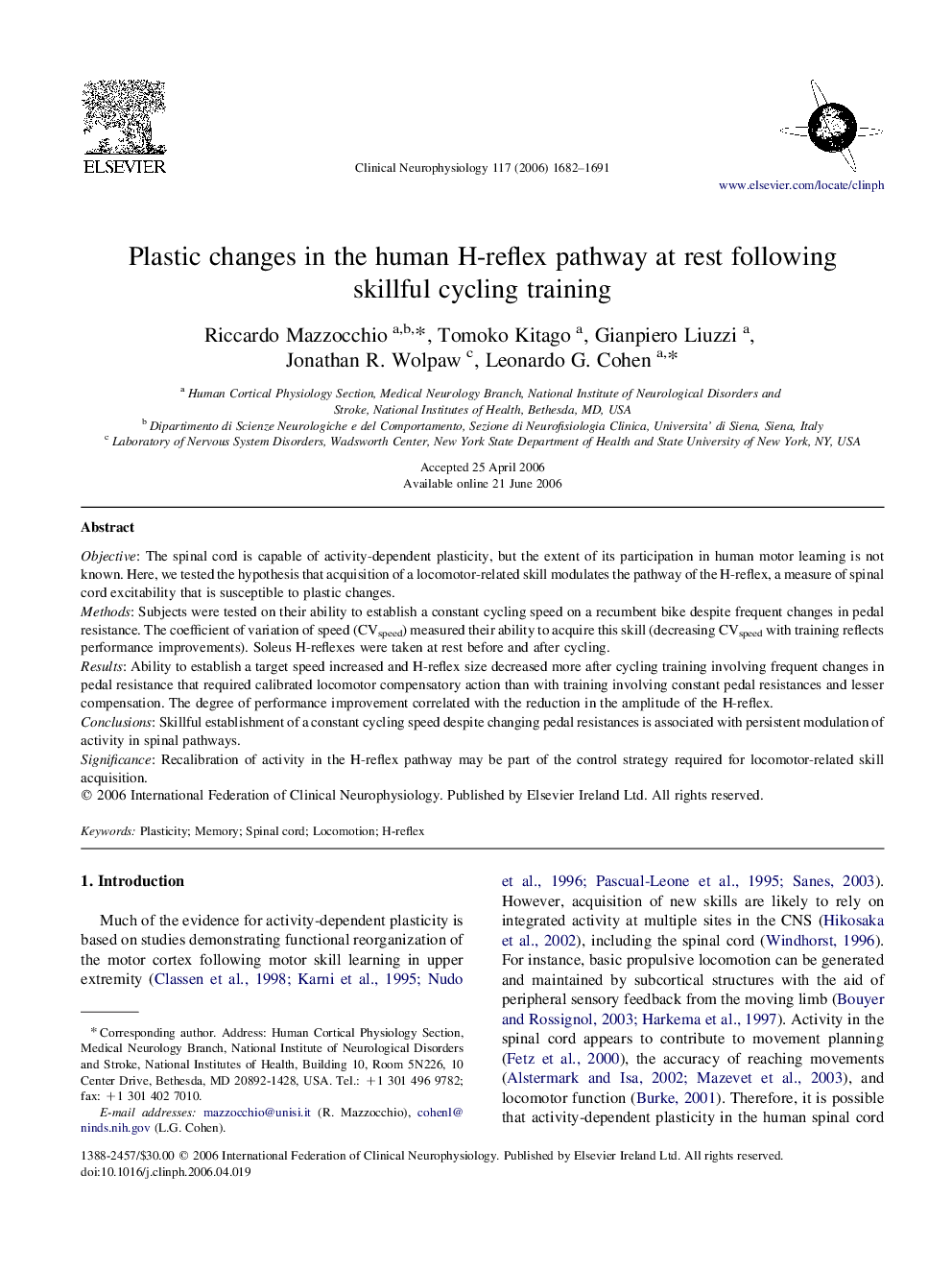| Article ID | Journal | Published Year | Pages | File Type |
|---|---|---|---|---|
| 3048660 | Clinical Neurophysiology | 2006 | 10 Pages |
ObjectiveThe spinal cord is capable of activity-dependent plasticity, but the extent of its participation in human motor learning is not known. Here, we tested the hypothesis that acquisition of a locomotor-related skill modulates the pathway of the H-reflex, a measure of spinal cord excitability that is susceptible to plastic changes.MethodsSubjects were tested on their ability to establish a constant cycling speed on a recumbent bike despite frequent changes in pedal resistance. The coefficient of variation of speed (CVspeed) measured their ability to acquire this skill (decreasing CVspeed with training reflects performance improvements). Soleus H-reflexes were taken at rest before and after cycling.ResultsAbility to establish a target speed increased and H-reflex size decreased more after cycling training involving frequent changes in pedal resistance that required calibrated locomotor compensatory action than with training involving constant pedal resistances and lesser compensation. The degree of performance improvement correlated with the reduction in the amplitude of the H-reflex.ConclusionsSkillful establishment of a constant cycling speed despite changing pedal resistances is associated with persistent modulation of activity in spinal pathways.SignificanceRecalibration of activity in the H-reflex pathway may be part of the control strategy required for locomotor-related skill acquisition.
